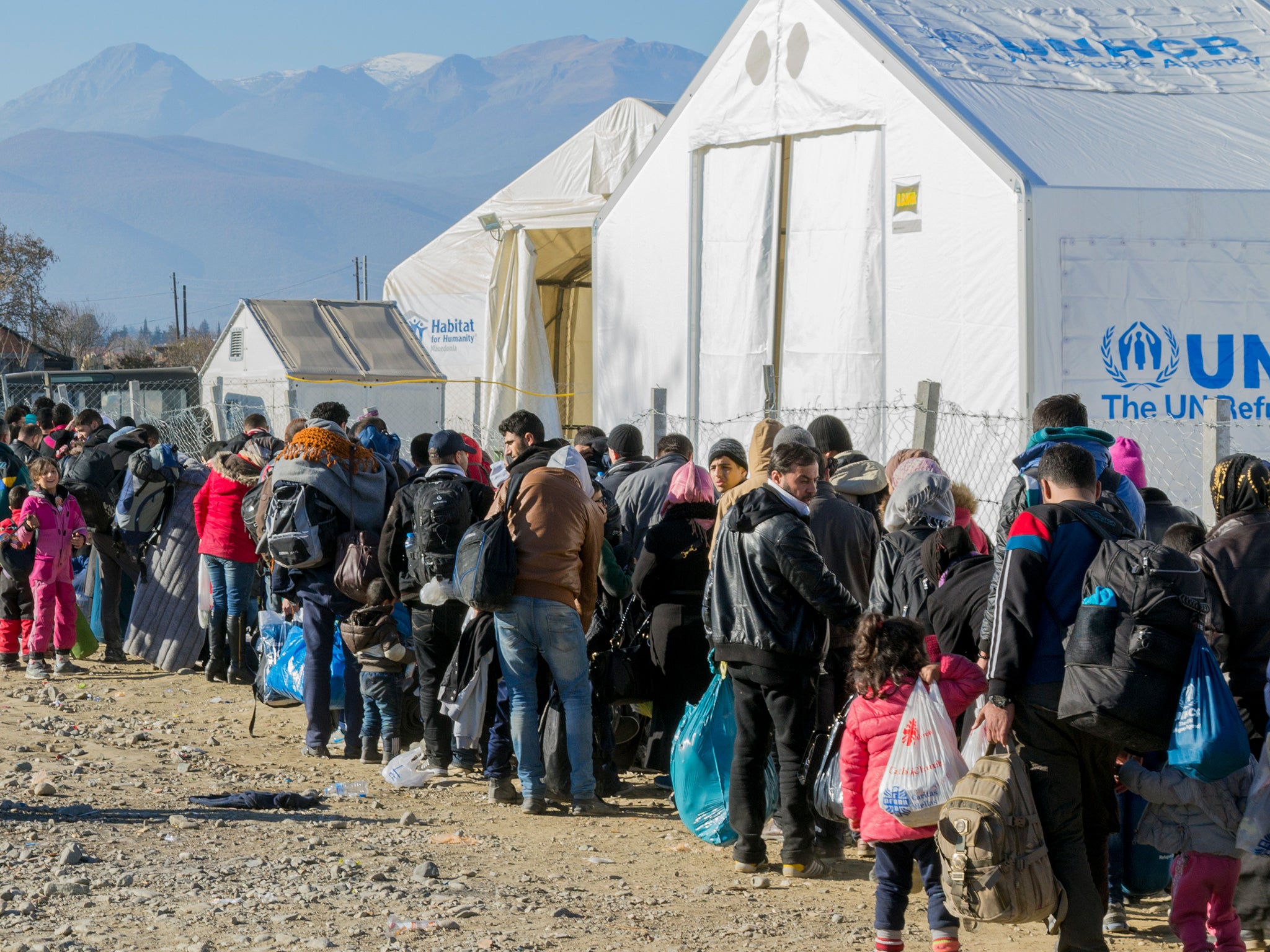World Health Organisation explodes myth that refugees spread disease
Report finds no increased transmission of illness between migrants and those living in the countries they settle in

Your support helps us to tell the story
From reproductive rights to climate change to Big Tech, The Independent is on the ground when the story is developing. Whether it's investigating the financials of Elon Musk's pro-Trump PAC or producing our latest documentary, 'The A Word', which shines a light on the American women fighting for reproductive rights, we know how important it is to parse out the facts from the messaging.
At such a critical moment in US history, we need reporters on the ground. Your donation allows us to keep sending journalists to speak to both sides of the story.
The Independent is trusted by Americans across the entire political spectrum. And unlike many other quality news outlets, we choose not to lock Americans out of our reporting and analysis with paywalls. We believe quality journalism should be available to everyone, paid for by those who can afford it.
Your support makes all the difference.The World Health Organisation (WHO) has dispelled the myth that refugees coming to Europe are spreading disease.
In its first report on the health of migrants and refugees, the WHO found there was no increased transmission of illnesses between refugees and those living in the countries they settle in.
The research, which summarises a review of more than 13,000 documents, was developed in partnership with the Italian National Institute for Health, Migration and Poverty (INMP) and also found that migrants are at a lower risk of getting all forms of cancer, except cervical.
The report did however say that refugees are at a greater risk of developing diseases because of their exposure to infections due to poor living conditions and the lack of healthcare access during the migration process.
In light of the findings Dr Zsuzsanna Jakab, the regional director for Europe for the WHO, said political and social systems across the continent were struggling to rise to the challenge of responding to migration in a “humane and positive way”.
“As migrants and refugees become more vulnerable than the host population to the risk of developing both noncommunicable and communicable diseases, it is necessary that they receive timely access to quality health services, as everyone else,” Dr Jakab said.
“This is the best way to save lives and cut treatment costs, as well as protect the health of the resident citizens.”
The research also found that in some European countries citizens were estimating that there are three or four times more migrants than there really are.
The findings come amid a recent influx of refugees attempting to travel to the UK on small boats.
On 20 January a dinghy carrying eight suspected refugees was towed into Dover by a Border Force patrol crew.
The small inflatable boat had eight males on board who claimed to be Iranian.
The Home Office said the group was given a medical assessment and will now be interviewed by immigration officials.
Join our commenting forum
Join thought-provoking conversations, follow other Independent readers and see their replies
Comments